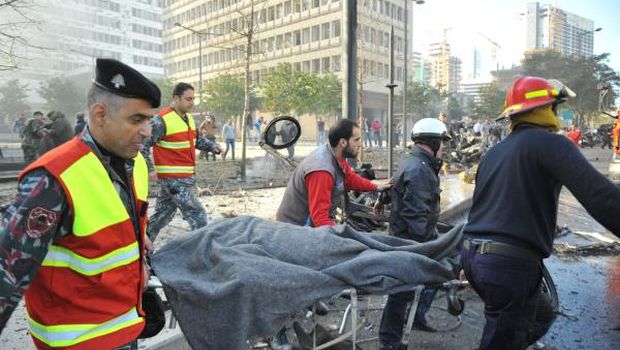Beirut doesn’t look like itself these days. The city is closing in on itself now that those who were able to escape have done so. Those who stayed are worried about what might await them.
Threats to the public from the bombings are on the rise, as are political divisions. Passers-by walk briskly, hoping their cautious haste does not give away any indication of their silent prayers or fears that their last Twitter, Facebook or WhatsApp message might indeed have been just that.
The Lebanese have regained that sense of the caution that became a part of their life during the civil war in the 1980s. They are now paranoid as they pass near any car or walk through any neighborhood well-known as being Sunni or Shi’ite, which makes those areas a likely target for bombs and assassinations.
Relatively speaking, there has been little time between each explosion. But last week saw a turn of events when only a few days separated the two bombings in the city. Politicians are trying to contain the situation through public statements and media campaigns. Such efforts, however, seem weak when measured against the endeavors of those seeking chaos.
Pages on social networking websites are mobilizing people. Lebanese youths have launched a virtual resistance to the situation arising from the bombings across the country. “I am not a martyr” is a slogan used in one campaign on Facebook, which was inspired by the deaths of three young men. They are Mohammed Chaar, Ali Khadra and Malak Zahwi, Lebanese teenagers who were killed in the last two explosions simply because they were in the wrong place at the wrong time.
The different explosions across the country—whether the one in which former minister Mohamad Chatah was killed or the suicide bombing in Beirut’s southern suburb of Dahieh—targeted civilians above all else. But resisting these explosions with civil campaigns, either in the virtual world or through the traditional media, seems weak when compared with the determination displayed by those carrying out the attacks.
Hezbollah will resume fighting in Syria alongside a criminal regime, and in doing so it will drag Lebanon towards further divisions and jeopardize its people even more. Meanwhile, the Islamic State of Iraq and Syria (ISIS) seems more determined to keep killing. It has announced that it will resume its operations and that the explosions the Lebanese people have suffered up to now are only a part of what it is preparing.
How can the Lebanese confront that through a Facebook campaign here or a comment and Twitter post there? Lebanese historian and author Ahmad Baydoun said that Facebook has become our refuge in Lebanon. This is our reality today. Assassinations and murder haunt us in the streets, so we flee to the virtual world, leaving reality for Hezbollah and ISIS.
